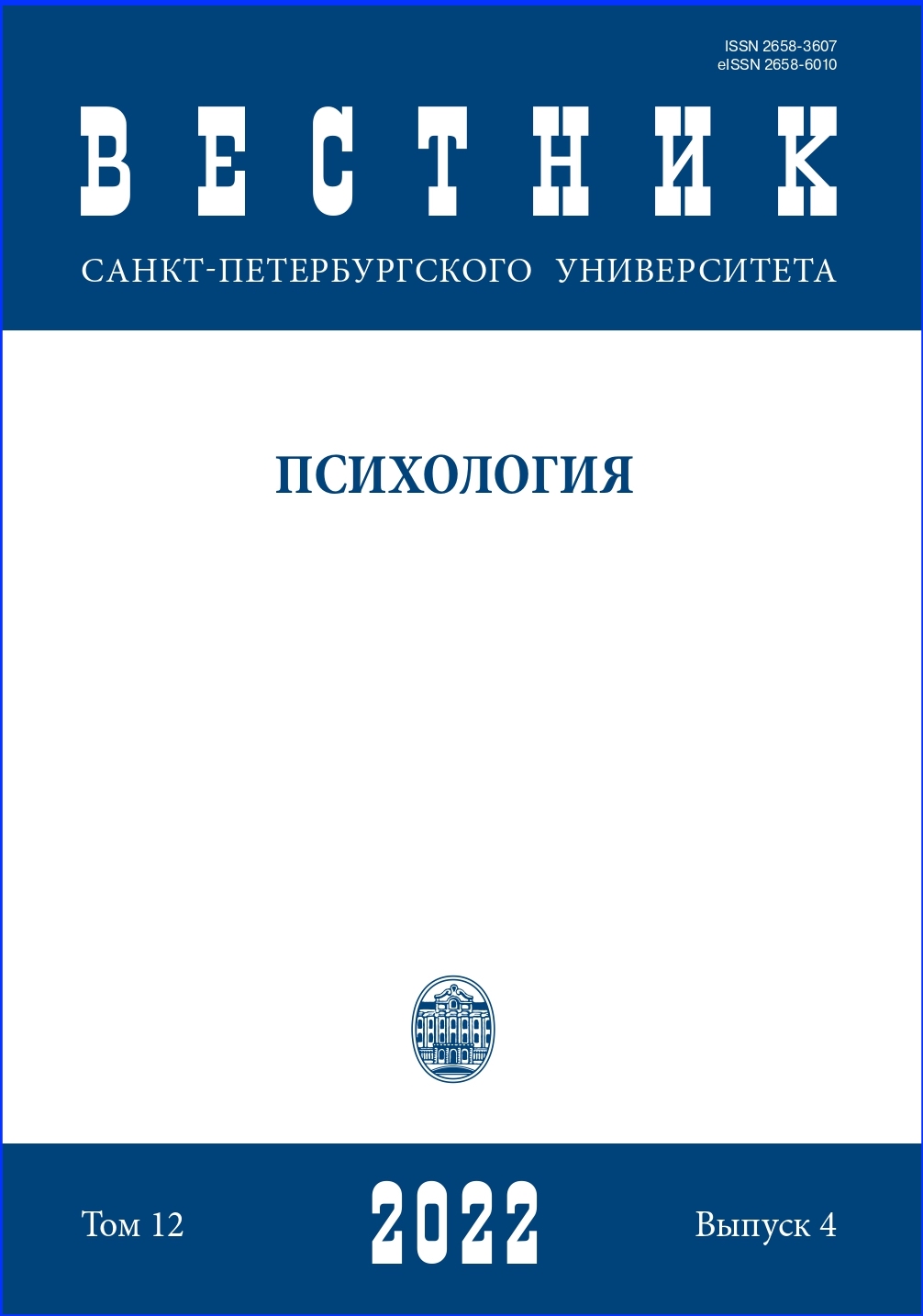Analysis of the theory of mind indicators in children from different baby home social-emotional environment
DOI:
https://doi.org/10.21638/spbu16.2022.401Abstract
This study examined whether the structure of the theory of mind indicators in the group of institutionalized children would be associated with differences of social-emotional environment in two Russian Baby Homes (BHs), one of which received Training plus Structural Changes (T+SC) intervention, that increased caregiver sensitivity and consistency, the other continued to conduct baseness as usial (No Intervention, NoI) and defined as social-emotionally depriving. The relevant to the theory of mind items of the personal-social scale of the Battelle Developmental Inventory were selected and used to assess children in T+SC (N=70; M=2.37, SD=1.01 years) and NoI (N=50; M=2.18, SD=0.92 years). Results suggested between-group differences in the factor structure for the theory of mind indicators. The main factor for children from NoI reflected development of self-understanding in combination with understanding of adults and peers, while for children from T+SC — of self-understanding in combination with understanding of adults, which might be due to opportunity for children to live in the small size group and interact with more sensitive and consistent primary caregivers. The second factor in both BHs revealed development by children understanding of peer interactions and feelings, and difference between BHs was that for children from depriving NoI environment such understanding was combined with understanding of caregivers’ instructions and rules. Results suggest that children’s environment shapes their theory of mind and that positive changes in institutional caregiving can have some benefits in children’s self-understanding and understanding of other people.
Keywords:
theory of mind, children, institution, socio-emotional environment
Downloads
References
References
Downloads
Published
How to Cite
Issue
Section
License
Articles of "Vestnik of Saint Petersburg University. Psychology" are open access distributed under the terms of the License Agreement with Saint Petersburg State University, which permits to the authors unrestricted distribution and self-archiving free of charge.




